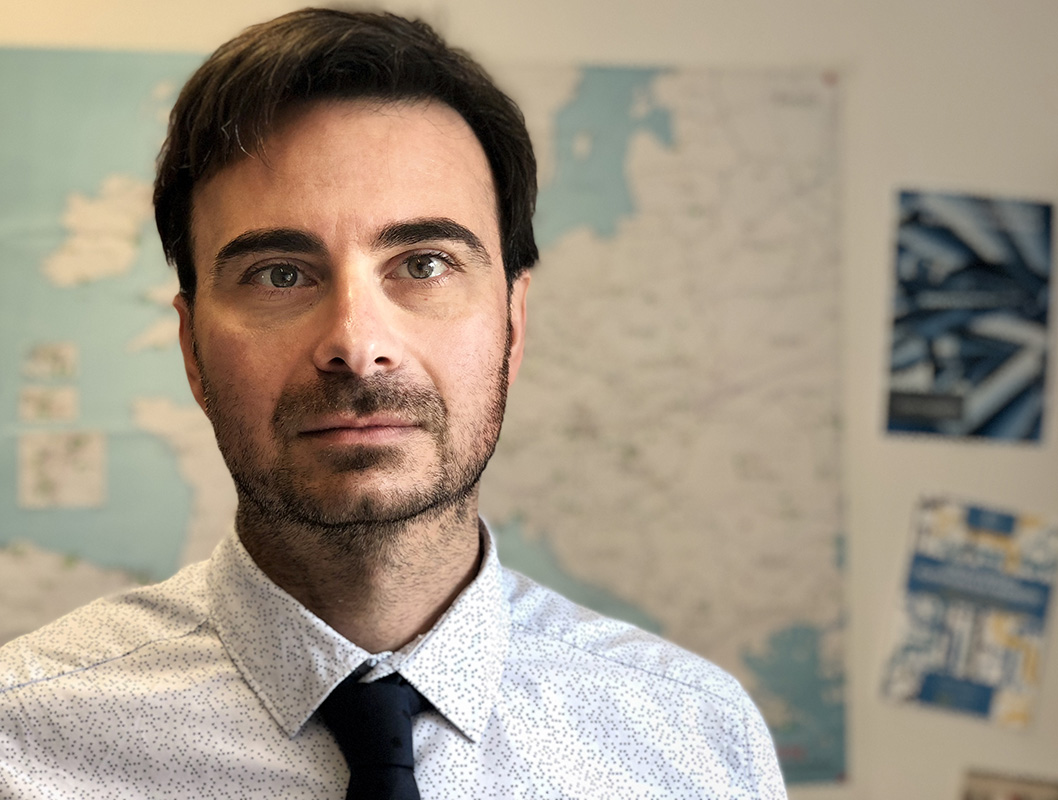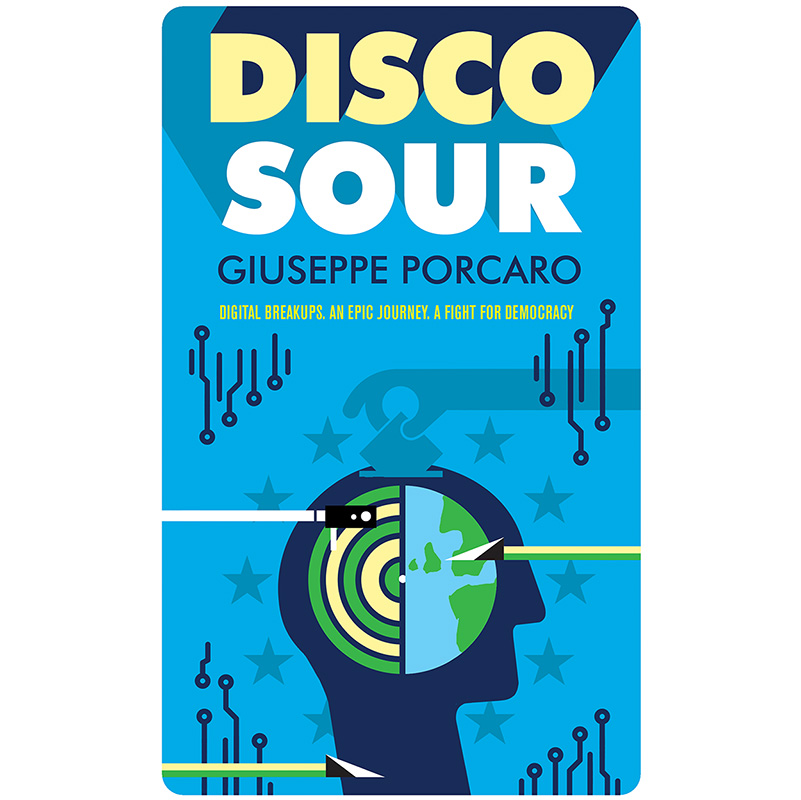This website uses cookies so that we can provide you with the best user experience possible. Cookie information is stored in your browser and performs functions such as recognising you when you return to our website and helping our team to understand which sections of the website you find most interesting and useful.
Economic expert Giuseppe Porcaro on how his debut novel imagines a new Europe
By Michelle Johnson | 29 August 2018 | Culture
Disco Sour combines technology and politics as the EU moves towards unchartered territories

Giuseppe Porcaro is a political geographer specialising in how the intersection between technology and politics is shaping our democratic future. From his previous role as Secretary General of the European Youth Forum, to his current work as international economic think tank Bruegel's head of communications, Porcaro has always been fascinated in how we engage with Europe – not just its policies and politics, but its future as a world power.
"What is exciting about the future is that we're haven't even begun to imagine where we might be in the future – and I don't mean in 20-years-time, but between two to five years," Porcaro tells Tempus. "This is what makes me think we need an open dialogue on how we want our future to be – on what the future of the European Union should be. Our political discussions should lay on this.
"It seems we can either engage in a very pessimistic view – a public discourse that's about fear – or overly optimistic views, where people seem to think technology will save us all," he adds. "Things will actually land very much in the middle, and I hope will allow us to start a healthy democratic discussion again. I feel that's what we're missing at the moment, in our current world of people in the system, outcasts or populism a la [US President] Trump. We have amazing opportunities coming with technological advances, but we have to keep politics human. And that's a very important question – how do we use technology to help our communities?"
Porcaro's debut novel Disco Sour first hit the shelves in May this year, and has since been awarded the EU's Altiero Spinelli Prize for Outreach. The speculative fiction is set in a post-continental civil war future, and follows recently-heartbroken politician Bux, who meets an entrepreneur planning to sell Plebiscitum, a dating-style app meant to replace elections with a single swipe, at the same political conference Bux is travelling to. >>

"I was very much inspired by dating apps, and whether it would be possible to automate democracy with algorithms in a similar way," he says. "I was deeply involved in the 2014 European Elections, running a non-partisan campaign to get young people engaged in voting. But through that campaign it was clear there was a disaffection for the EU project. I wanted to find another way to appeal to people on an emotional level – and my novel was born.
"My protagonist has a serious issue dealing with romantic breakups, which really is a metaphor for how we're all mid-break-up with democracy right now," he says. "It used to be that the personal was political, but with how politicians are now campaigning via social media platforms made for personal use – like Facebook and Twitter – and targeted at friends and family communities, it's clear that nowadays the political is becoming very personal – it's using the personal." Porcaro says that, as a fan of popular fictions such as The Handmaid's Tale, he noticed there was a gap in the market for a Euro-centric work.
"Political science fiction is really having a moment as a genre – look at the popularity of Black Mirror or The Handmaid's Tale, it's something that is clearly appealing," he says. "However, when you see these stories you see that they are very often centred socio-politically in the US, sometimes the UK, but we rarely see anything set in Europe. And that contributes to this image that we have of the EU being a technocratic, specialised, politicised world, while actually the EU can – and should – be as much a part of our emotional narrative as America is."







